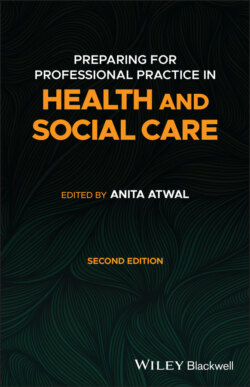Читать книгу Preparing for Professional Practice in Health and Social Care - Группа авторов - Страница 10
Knowledge
ОглавлениеIn the last section, the relationship between professionalism and knowledge was outlined. In this section, knowledge and its definitions and characterisation will be explored. There are several critical theories of knowledge, but knowledge should not be taken simply as a series of facts strung together like beads. There is an element of interpretation involved whenever and whatever professional knowledge is used. Once we have determined what sort of knowledge is being used, we have to decide how we judge its authenticity.
Higgs and Titchen (1995) refer to three important types of knowledge – propositional, professional, and personal knowledge. Propositional knowledge is acquired through the study of books, articles, teaching, etc. Professional knowledge is that which practitioners develop in respect of their craft. It is generally difficult to source or describe to others. Personal knowledge comes from theoretical insight and an examination of values and ethics.
With this sort of delineation of the types of knowledge, there comes an appreciation of the complexity of understanding that a professional has to juggle to come to accurate and appropriate decisions about the healthcare they provide. It highlights the inadequacy of a position that states that propositional learning alone can account for expert professional practice. Professionals need to understand the various ways that they might learn. It is by understanding this complexity that they can adjust their learning and the examination of their knowledge base to develop as professional healthcare providers throughout their career. Although these types of knowledge might be distinct, they inform each other and are intimately connected. They are mutually transformative; hence the advance or change in one informs the other (Higgs et al. 2004).
